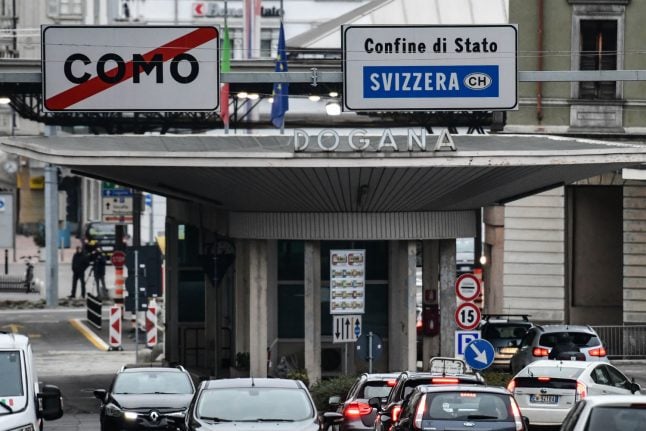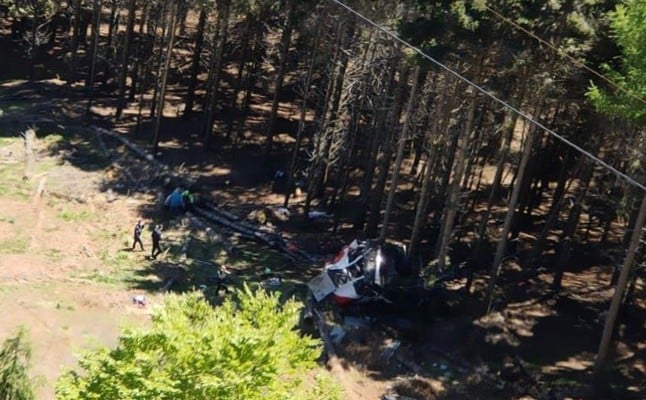Italy announced on May 16th that it would be allowing international tourists to come into the country starting next week, and that a 14-day mandatory quarantine period would be scrapped.
The announcement caught Swiss authorities by surprise because Switzerland and its other neighbours, Germany, France, and Austria, agreed to lift travel restrictions only from June 15th.
At the time of the agreement Italy was still in partial lockdown.
“The situation in Italy has calmed down, but it is still more delicate than in Switzerland, Austria or Germany,” Norman Gobbi, the president of the Ticino government said at the time.
Ticino shares a long border with Italy, where the coronavirus killed over 33,000 people to date.
READ MORE: Swiss authorities caught by surprise by the re-opening of Italy's borders
But even though people from Switzerland will be allowed to go to Italy, Italians won’t be able to enter Switzerland.
“Switzerland informed Italy that it considered it premature to lift its border controls from June 3rd”, Swiss president Simonetta Sommaruga said during a press conference this week.
Speaking in Italian, one of Switzerland’s four national languages, she added that “we want a coordinated reopening. We will therefore not open the border on that date”.
Travel to Italy is not recommended for Switzerland's residents until July 6th at the earliest, Karin Keller-Sutter, the head of the Federal Department of Justice and Police said at the press conference.
Those who go to Italy from June 3rd can do so at their own risk, but could face border controls upon their return to Switzerland. For example, they may have to fill out special forms and produce a health certificate.
Because of its proximity to northern Italy, the situation is especially pertinent in the canton of Ticino.
According to Gobbi, people from Ticino will be able to cross the border into Italy, but the health risk “must be assessed once they have returned to our territory”.
As a reminder, the only Italian citizens who are authorised to enter the country at the moment are the 70,000 cross-border G-permit holders who commute to their jobs in Switzerland.
Ticino authorities say federal government is easing restrictions too quickly
In a press conference on Thursday, Raffaele De Rosa, the head of the canton’s health department, said that the lifting of the restrictions announced by the Federal Council on May 27th was “accelerated” and he would prefer “if Bern had chosen the cautious path”.
“What worries me is the new threshold for gatherings”, he said, referring to the Federal Council’s decision to allow groups of up to 30 people to meet in public places from May 30th, increasing from the current limit of five. Then, from June 6th, up to 300 people will be able to get together.
READ MORE: Switzerland announces most lockdown restrictions will be dropped in June
“Considering what Ticino has been through these past months, it would have been desirable to go a little slower with regards to the gatherings. In large events it becomes more difficult to guarantee protection plans and any contact tracing”, De Rosa said.
He also pointed out that Ticino’s coronavirus crisis was more severe than in other parts of Switzerland.
“We have experienced first-hand how long it can take for the situation to get better”.
Ticino had Switzerland’s first Covid-19 patient on February 25th – a man who had been infected while in Milan.
Since that time, the number of confirmed infections in the canton had risen significantly to 3,245, including 341 deaths. Only the canton of Vaud registered more fatalities.





 Please whitelist us to continue reading.
Please whitelist us to continue reading.
Member comments